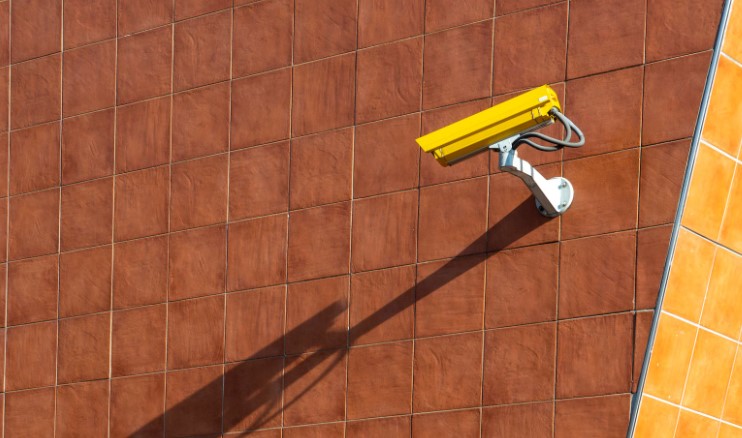What are industrial cameras, and how do they work?
Industrial cameras are specialized cameras designed for use in various industrial and commercial applications. They are built to withstand harsh environments and conditions, and they are typically used in applications that require high-resolution images and high-speed imaging.
Industrial cameras can be used in a wide range of industries, including manufacturing, automation, robotics, medical imaging, agriculture, and transportation. They are designed to be more rugged and durable than traditional cameras, and they often have features such as high-speed image capture, high resolution, and advanced image processing capabilities. They are used in a wide range of industries, including:
-
Machine vision: Industrial cameras are widely used in automation and robotics, as they provide high-resolution images that can be analyzed by computer algorithms to guide and control machinery.
-
Medical imaging: Industrial cameras are used in medical imaging systems, such as endoscopy and microscopy, to capture high-resolution images of the human body for diagnostic and research purposes.
-
Sports analytics: Industrial cameras are used in sports analytics to capture high-speed video footage for analysis of player and ball movements, as well as tactical decision-making.
-
Quality control: Industrial cameras are used in quality control applications, such as in-line inspection of manufactured goods, to ensure that products meet quality standards.
-
Agriculture: Industrial cameras are used in precision agriculture, to capture images of crops, monitor crop growth, and health, and identify areas of stress or disease.
-
ANPR: Automatic Number Plate Recognition (ANPR) cameras are widely used in traffic monitoring, law enforcement, and security applications.
-
Automation: Industrial cameras are also used in automation systems, such as in packaging, sorting, and assembly lines, to monitor and control the movement of products.
-
Surveillance cameras, also known as security cameras, are cameras that are designed to be used for monitoring and security purposes. It can be used to monitor the inside and outside of buildings, such as offices, retail stores, and warehouses, to deter theft and provide evidence in case of a security incident. Surveillance cameras can be used in industrial settings, such as factories and construction sites, to monitor for safety hazards and to provide evidence in case of an incident.
Benefits of Using Industrial Cameras for Businesses & Industries
Industrial cameras offer a wide range of benefits for various industrial and commercial applications. Here are a few of the main benefits of using industrial cameras:
-
High resolution and accuracy: Industrial cameras are designed to capture high-resolution images with a high level of accuracy, which is essential for many industrial and commercial applications, such as quality control and machine vision.
-
High-speed imaging: Industrial cameras are capable of capturing high-speed images, which is important for applications such as sports analytics and in-line inspection.
-
Rugged and durable: Industrial cameras are built to withstand harsh environments and conditions, making them suitable for use in industrial settings.
-
Flexibility: Industrial cameras offer a wide range of features and options, such as different resolutions, frame rates, and lens options, making them suitable for a wide range of applications.
-
Cost-effective: Industrial cameras are designed to be cost-effective and offer a good return on investment in the long run.
-
User-friendly: Industrial cameras are designed to be easy to use, with intuitive interfaces and simple controls, making them accessible to users of all skill levels.
-
Remote access: Many industrial cameras now offer remote access via the internet or network, which allows the user to monitor and control the camera from a remote location.
-
Integration: Industrial cameras can be easily integrated with other equipment and systems, such as machine vision systems, robotics, and automation systems.
Overall, industrial cameras are a versatile and reliable tool that can be used for a wide range of industrial and commercial applications, from quality control to sports analytics, agriculture, and more. These are just some examples of the many applications that industrial cameras can be used for.
Technology is constantly evolving, and new applications are being developed all the time. You may buy your industrial imaging camera easily online which is according to ISO9001 standards and undergoes strict quality control inspection.
How to Choose the Right Industrial Camera for Your Needs?
Choosing the right industrial camera for your needs can be a complex process, as there are many factors to consider. Here are a few tips for choosing the right industrial camera for your specific application:
-
Determine the resolution and frame rate requirements: The resolution and frame rate of the camera will depend on the specific application and the level of detail required. For example, a high-resolution camera with a high frame rate is needed for applications such as sports analytics or machine vision.
-
Consider the lighting conditions: The lighting conditions of the environment where the camera will be used should be taken into account when choosing a camera. For example, if the camera will be used in low-light conditions, a camera with a high sensitivity to light is necessary.
-
Look for a durable and rugged design: Industrial cameras need to be durable and rugged enough to withstand harsh environments and conditions. It’s important to choose a camera that is designed to withstand vibration, dust, and extreme temperatures.
-
Consider the lens options: The lens options of a camera should also be considered, as different lens options can affect the field of view, focus, and depth of field.
-
Check for connectivity options: Check for connectivity options, such as Ethernet, USB, or wireless connectivity, to ensure that the camera can be easily integrated with other equipment and systems.
-
Look for additional features: Additional features, such as remote access, built-in memory, and onboard processing, can be useful for certain applications.
-
Consult with an expert: Consult with an expert, such as a machine vision system integrator, to ensure that you are choosing the right camera for your specific application and to get help with the integration of the camera with other equipment and systems.
It’s important to note that selecting the right camera for your needs will depend on your specific application, budget, and environment. It’s always best to consult with an expert or conduct proper research before making a final decision.







